Step into the enchanting world of pansy flowers, where enchanting colors paint a tapestry of emotions and meanings. With its vibrant hues and delicate petals, the pansy flower has captivated people for centuries.
In this article, we will explore their rich symbolism, their origins, the language they speak through their colors, and the delightful ways you can incorporate them into your gift-giving and floral arrangements.
How did the pansy flower get its name?
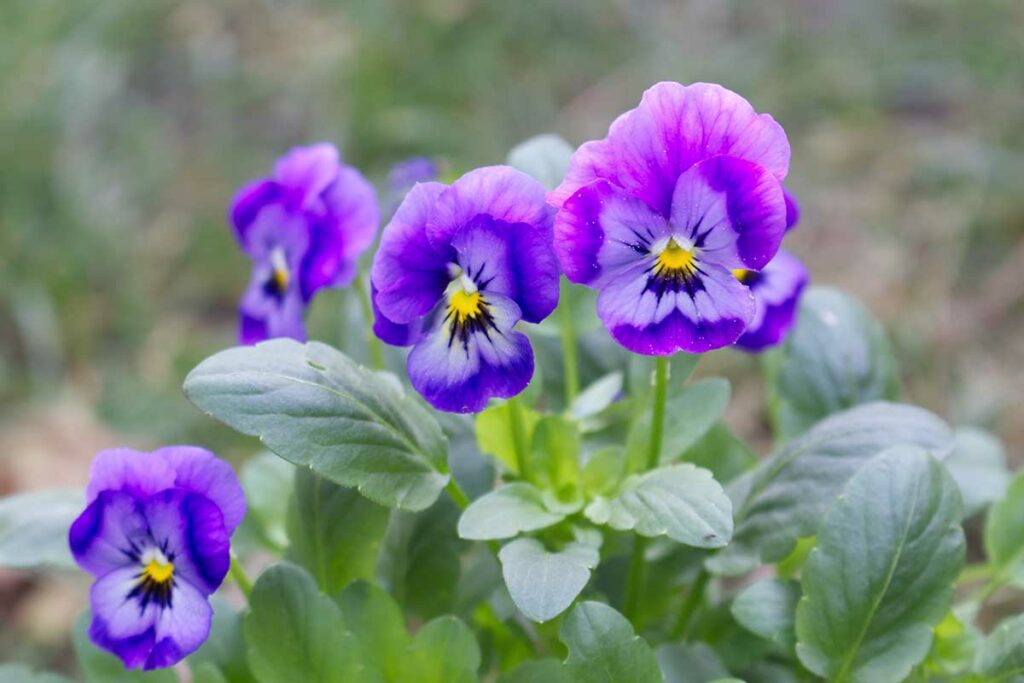

The name “pansy” holds an intriguing origin, adding to the mystique and symbolism surrounding these enchanting flowers.
“Pansy” is derived from the French word “pensée,” which translates to “thought.”
This etymology highlights the profound connection pansies have with introspection, reflection, and contemplation. The name suggests that these delicate blooms inspire deep thoughts and encourage us to pause and ponder.
What is the botanical origin of pansy flowers?
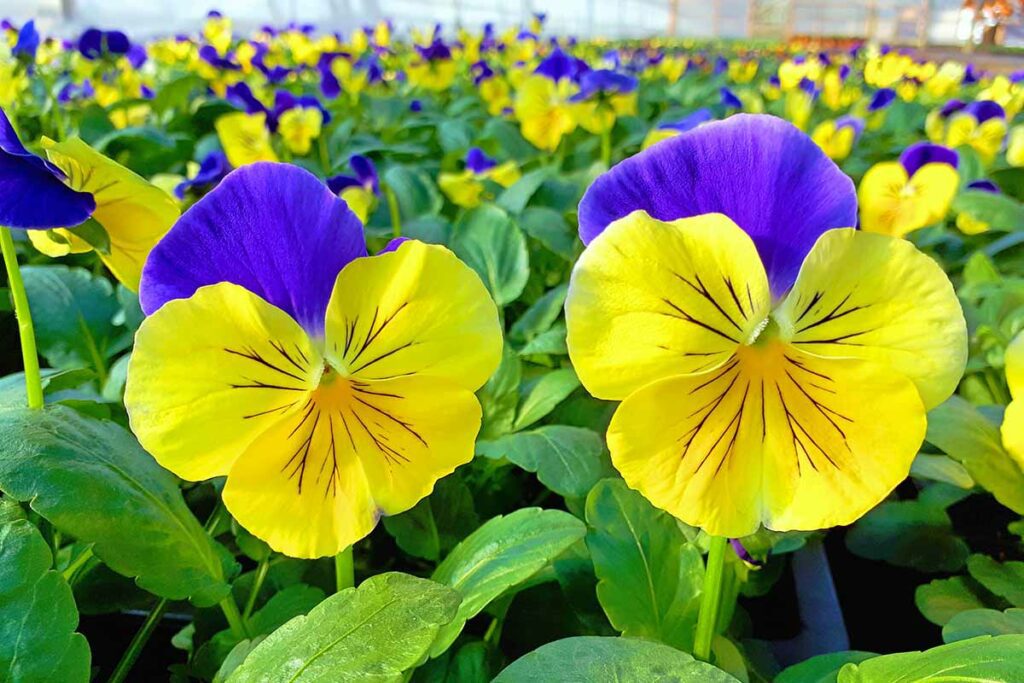

Pansies, scientifically known as Viola tricolor, belong to the Viola genus, which includes more than 500 species of flowering plants. They are native to Europe and Western Asia, and their cultivation dates back to ancient times.
Pansies were originally found in fields, meadows, and open woodlands. Over the centuries, pansies caught the attention of horticulturists and garden enthusiasts, leading to their cultivation and hybridization.
Through careful breeding and selection, a wide range of pansy cultivars have been developed, showcasing different flower forms, colors, and sizes.
What do pansy flowers mean?
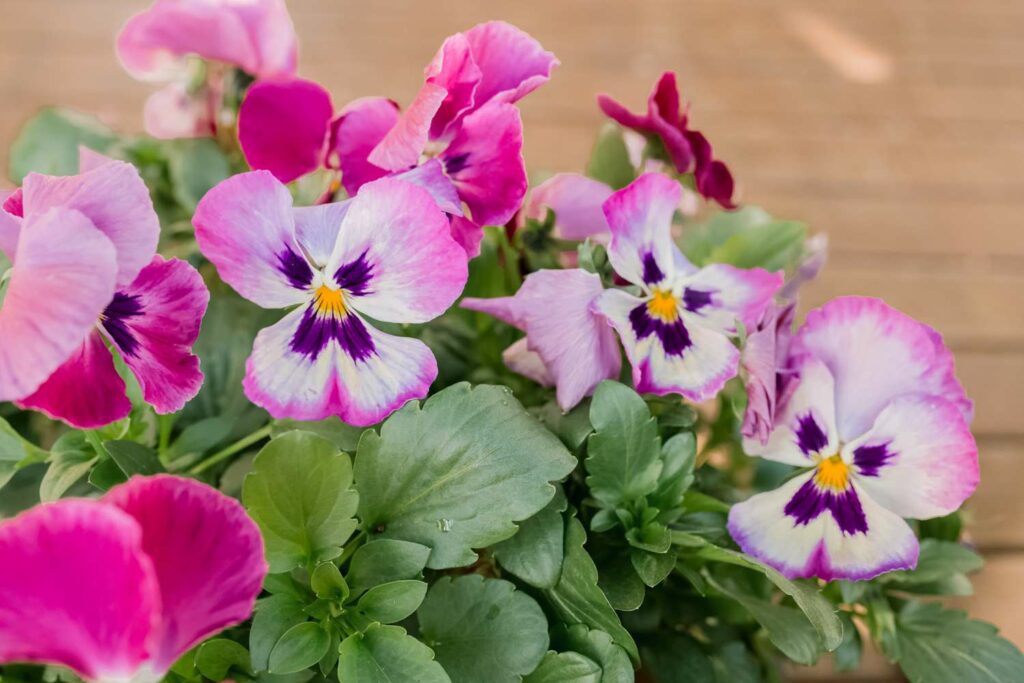

Pansy flowers are not just your average blooms. They are carriers of deep symbolism and cultural significance that have stood the test of time.
Since ancient times, the pansy has been revered as a flower that speaks volumes about love, remembrance, and thoughtfulness.
But here’s the truly captivating aspect of pansy symbolism: it isn’t confined to a single interpretation. No, these remarkable flowers are like a kaleidoscope of emotions, each color and variation conveying its own unique message, which you’ll see below.
What do the colors of the pansy flower mean?
Purple


Purple pansies symbolize royalty, admiration, and enchantment.
Recommended use: They’re also associated with dignity, grace, and charm, making them a perfect choice for expressing deep admiration or honoring someone special.
Yellow


Yellow pansies represent happiness, friendship, and joy. They evoke feelings of warmth, cheerfulness, and optimism.
Recommended use: Sharing yellow pansies with a friend or loved one is a wonderful way to brighten their day and express your affection.
Blue


Blue pansies are associated with calmness, serenity, and trust.
Recommended use: They convey a sense of tranquility and can be given as a gesture of peace, stability, or as a symbol of loyalty.
White


White pansies symbolize purity, innocence, and new beginnings.
Recommended use: They are often chosen to commemorate significant life events such as weddings, graduations, or the arrival of a newborn.
Multicolored
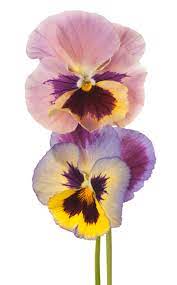

Multicolored pansies, with their vibrant blends of colors, represent diversity, creativity, and individuality.
Recommended use: They celebrate the uniqueness and complexity of individuals and can be given to express appreciation for someone’s distinct personality.
What is the cultural significance of pansy flowers?
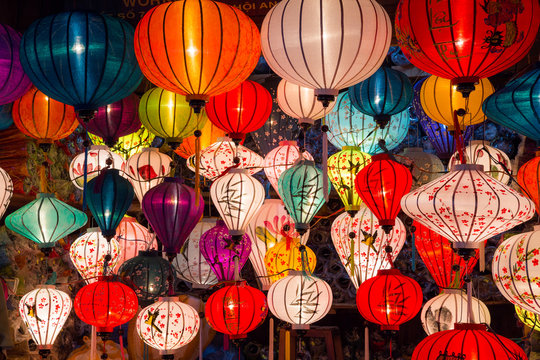

Pansy flowers hold cultural significance and are steeped in mythology and folklore. Let’s explore the cultural significance of pansy flowers across various traditions:
What did pansy flowers symbolize in various historical periods?


Pansy flowers have held symbolic meanings in different historical periods, their significance enduring across cultures and time. Let’s explore the symbolism of pansy flowers in various historical contexts:
Why Add Pansies in Bouquets and Flower Arrangements
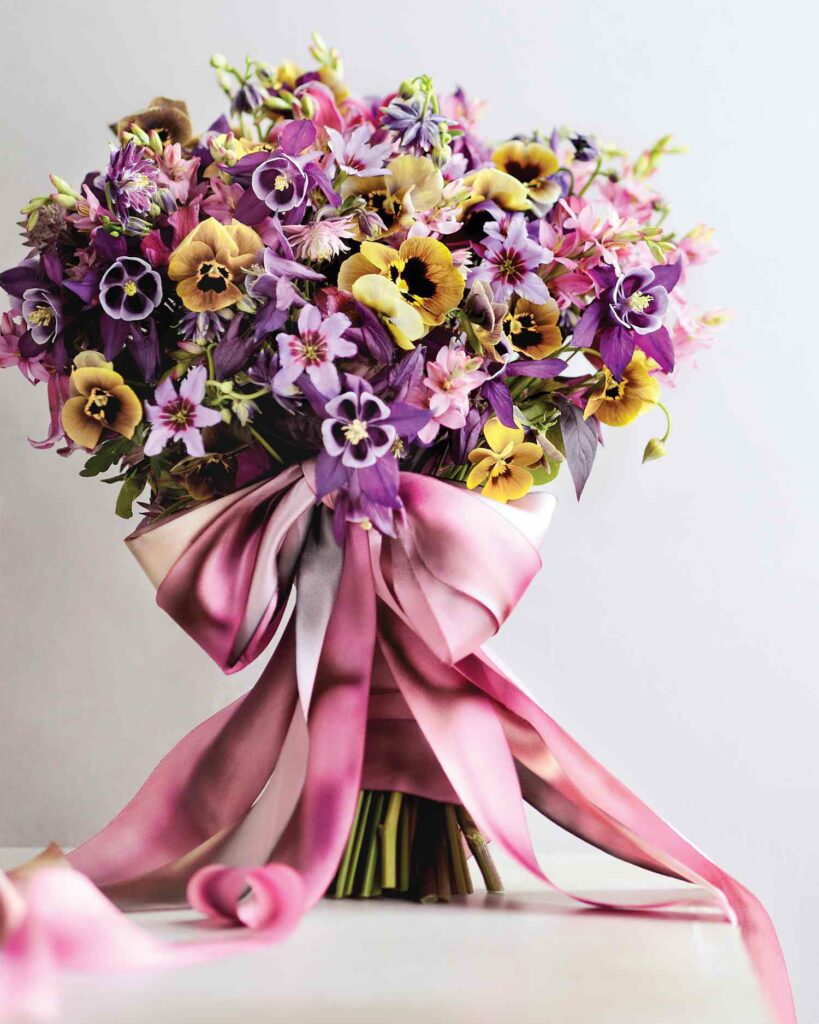

Pansies are beloved for their versatility and charming aesthetics, making them a popular choice for incorporating into bouquets and flower arrangements. Here are a few reasons and occasions they’d fit well in a floral design:
- Striking Visual Appeal: Pansies boast vibrant colors, velvety petals, and a petite size that adds a touch of charm and elegance to any floral composition. Their unique appearance makes them visually captivating and eye-catching.
- Versatile Combinations: Pansies can be seamlessly combined with other flowers and foliage to achieve various effects and suit different occasions.
They play well with a wide range of blooms, such as daisies, roses, tulips, and lilies, allowing for endless creative possibilities.
- For Celebratory Occasions: Pansies are commonly used to celebrate special occasions such as birthdays, anniversaries, and achievements.
Their cheerful and lively appearance adds a joyful touch to the arrangement, symbolizing happiness and success.
- For Spring-Themed Arrangements: With their bright and cheerful colors, pansies are a perfect addition to spring-themed floral designs.
They can be used to welcome the arrival of the season, create arrangements for Easter, or infuse a sense of renewal and freshness into the display.
- For a Balanced and Natural Look: Pansies can be paired with delicate foliage or greenery to create a balanced and natural look.
The addition of foliage provides texture, depth, and a sense of freshness to the arrangement, enhancing the overall visual appeal.
What are the other uses of pansy flowers?
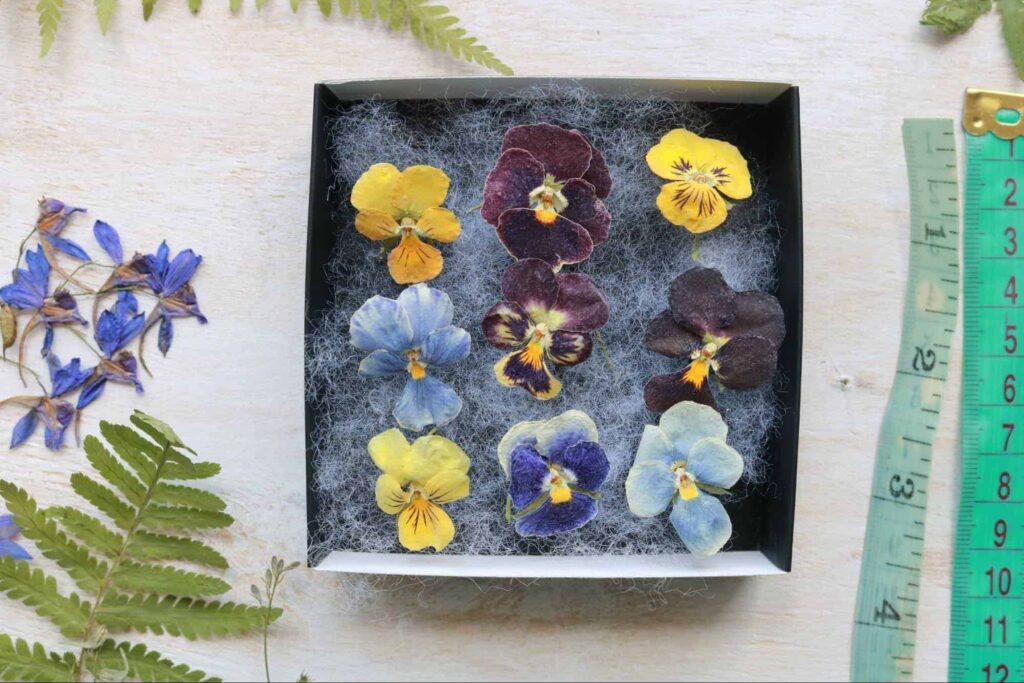

Beyond their traditional use in bouquets and flower arrangements, pansy flowers found their way into various aspects of our lives. Here are some other uses of pansies that showcase their beauty and versatility:
- Culinary Creations: Pansy flowers are edible and can be used to enhance food and drinks. Their vibrant colors and delicate petals make them an attractive addition to salads, desserts, and even infused beverages.
Pansies bring a touch of elegance and uniqueness to any dish, transforming it into a visually appealing culinary masterpiece.
- Arts and Crafts: Pansies are often used in art projects and crafts.
Their flat, dainty petals make them ideal for pressed flower art, where they can be preserved and incorporated into designs such as framed artwork, handmade cards, or bookmarks.
Pansy petals can also be dried and used in potpourri, adding a delightful fragrance to your home.
- Therapeutic Applications: Pansies have therapeutic properties and are used in various wellness practices. In aromatherapy, pansy essential oils or dried petals are used to promote relaxation, reduce stress, and uplift the mood.
Pansy extracts are also found in skincare products, offering benefits such as hydration, soothing effects, and promoting healthy-looking skin.
Gifting Pansy Flowers: Tips and Ideas
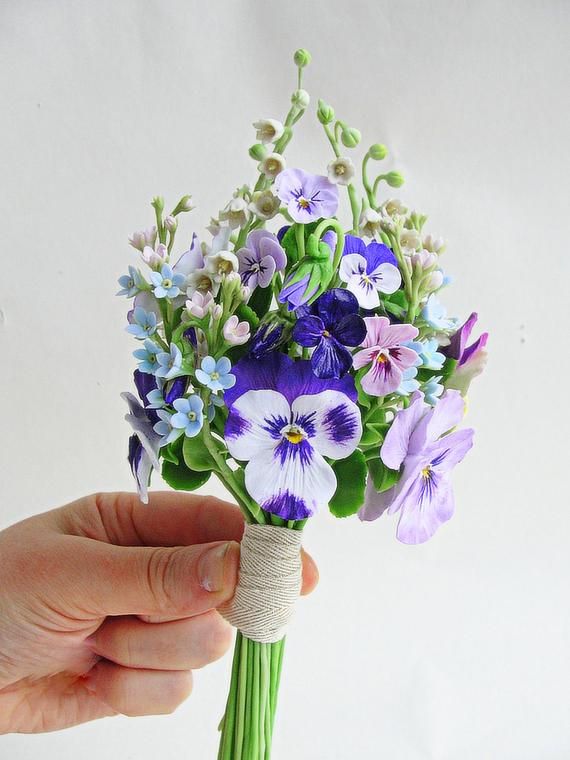

- Choose the right color: Select pansy flowers that align with the recipient’s personality, preferences, or the message you want to convey.
Whether it’s a vibrant purple to express admiration or a sunny yellow to spread joy, the color choice adds an extra layer of significance to the gift.
- Pair with meaningful items: Consider incorporating pansies into a themed gift basket or combining them with other symbolic items.
For example, you could include a journal for reflection and contemplation along with a bouquet of pansies symbolizing thoughtfulness.
- Create a personalized arrangement: Arrange the pansies in a unique and creative way to make the gift more special.
Hand-tied bouquets, floral wreaths, or mini pansy terrariums are just a few examples of how you can present pansies in an artistic and personalized manner.
How to Maintain Pansy Flowers in a Vase
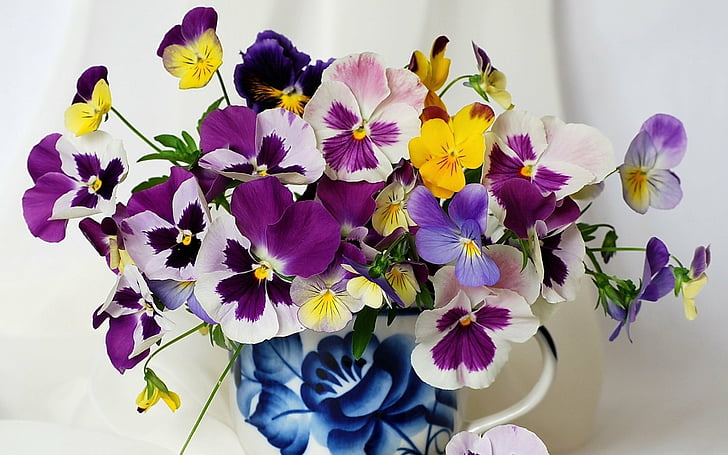

- Place your vase of pansies in an area where they can receive bright, indirect sunlight.
Avoid exposing them to direct sunlight, as this can cause wilting and premature fading of the blooms.
- Regularly tend to your pansy arrangements by removing wilted or faded blooms. This improves the visual appeal of the arrangement and prevents the development of mold or diseases.
Using clean and sharp scissors or pruning shears, cut the stem of each wilted flower just above the base where it connects to the main stem. Also, make sure to sanitize your tools between cuts to prevent the spread of diseases.
- Regularly clean the vase to prevent the accumulation of bacteria and impurities. Empty the vase, wash it with mild soap and water, and rinse thoroughly before refilling it.
- Change the water in the vase every two to three days. This helps prevent the growth of bacteria and keeps the flowers hydrated.
- Consider adding commercially available flower food to the water in your vase. Flower food contains essential nutrients that can prolong the lifespan of your pansy flowers.
Make sure to follow the instructions provided with the flower food for the correct dosage.



